CPS Unit Number 033-01
Camp: 33
Unit ID: 1
Operating agency: MCC
Opened: 6 1942
Closed: 10 1946
Workers
Total number of workers who worked in this camp: 609
-
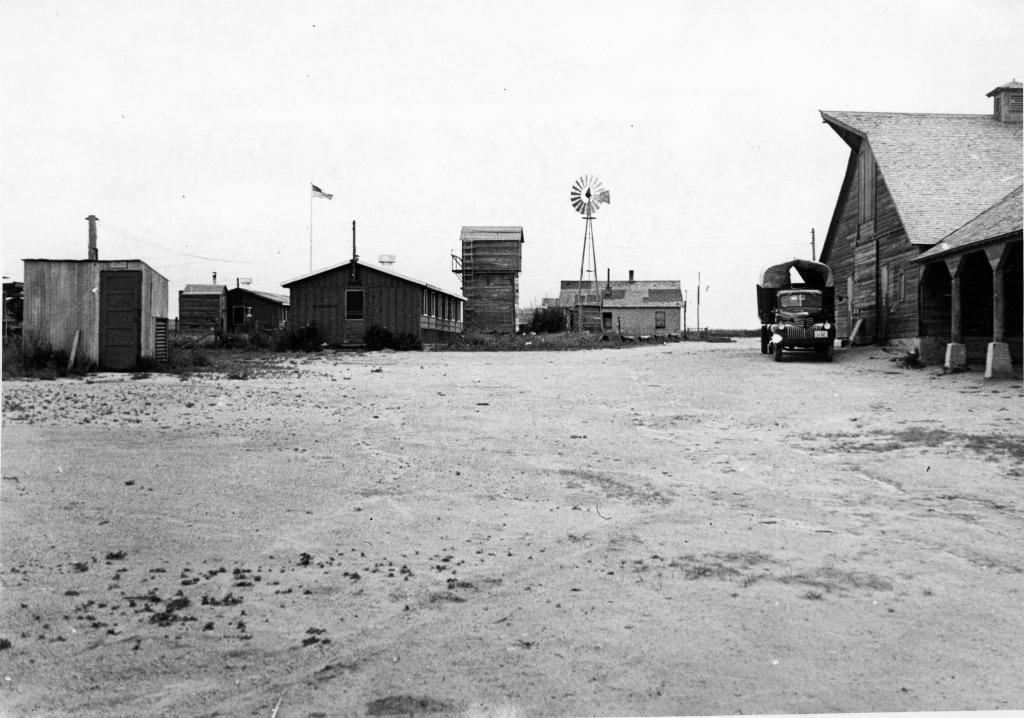 CPS Camp No. 33, Fort Collins, ColoradoBuckingham side camp.Digital image at Mennonite Church USA Archives, North Newton, Kansasca. 1943
CPS Camp No. 33, Fort Collins, ColoradoBuckingham side camp.Digital image at Mennonite Church USA Archives, North Newton, Kansasca. 1943 -
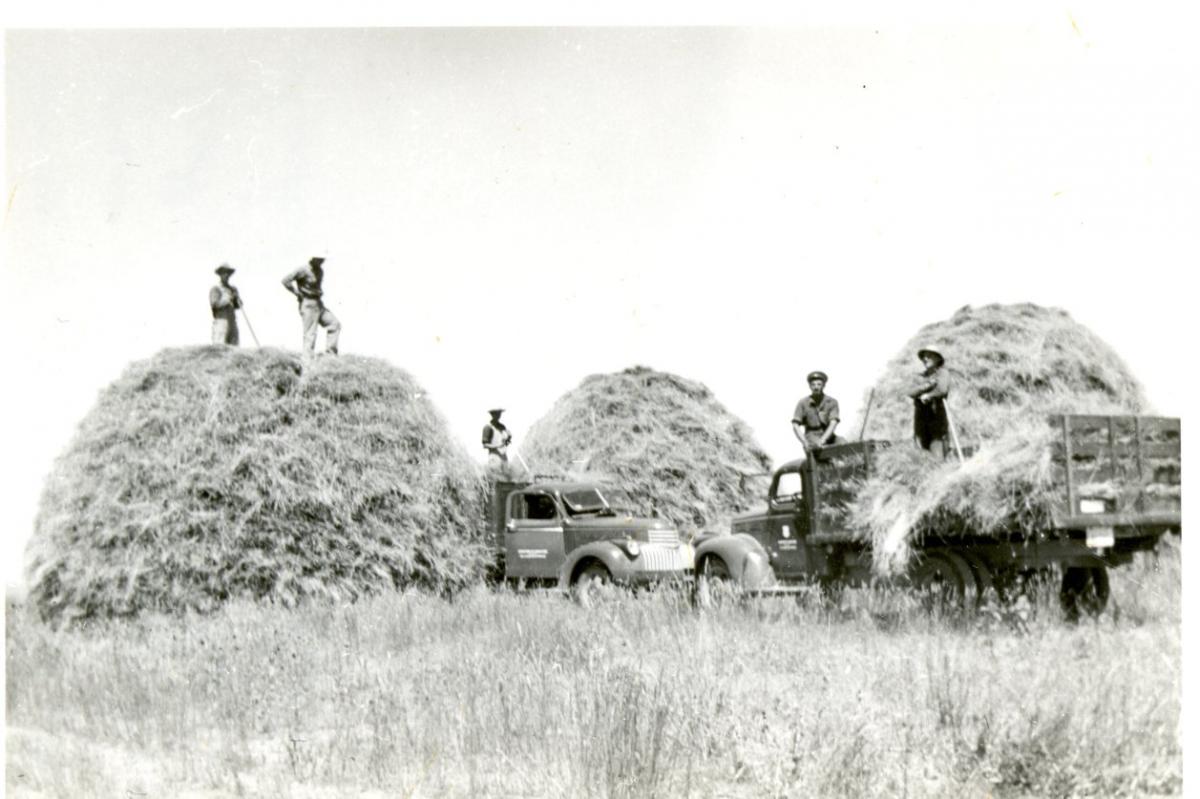 CPS Camp No. 33 Fort Collins, ColoradoCivilian Public Service camp 33, Fort Collins, Colorado. Some of the crested wheat grass was cut by binder last summer, then stacked and threshed.Box 1, Folder 20. MCC Photographs, Civilian Public Service, 1941-1947. IX-13-2.2. Mennonite Central Committee Photo Archive
CPS Camp No. 33 Fort Collins, ColoradoCivilian Public Service camp 33, Fort Collins, Colorado. Some of the crested wheat grass was cut by binder last summer, then stacked and threshed.Box 1, Folder 20. MCC Photographs, Civilian Public Service, 1941-1947. IX-13-2.2. Mennonite Central Committee Photo Archive -
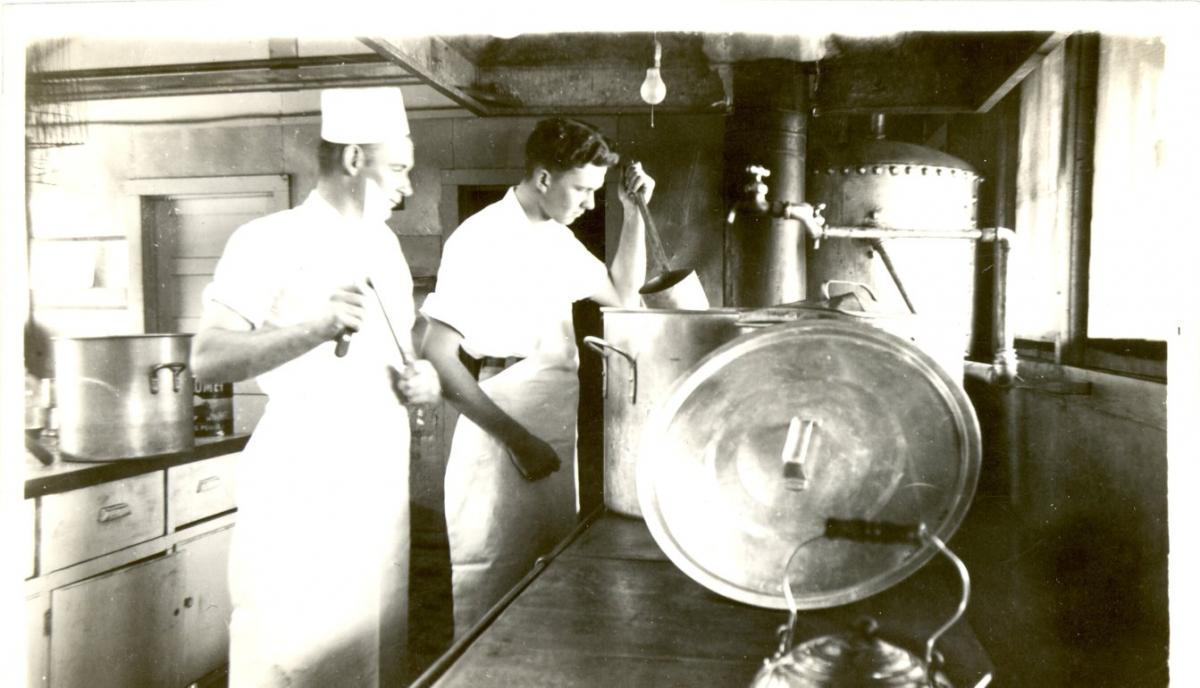 CPS Camp No. 33 Fort Collins, ColoradoCivilian Public Service camp 33, Fort Collins, Colorado. Ed Toews, Henry M.E., Herman Buller.Box 1, Folder 20. MCC Photographs, Civilian Public Service, 1941-1947. IX-13-2.2. Mennonite Central Committee Photo Archive
CPS Camp No. 33 Fort Collins, ColoradoCivilian Public Service camp 33, Fort Collins, Colorado. Ed Toews, Henry M.E., Herman Buller.Box 1, Folder 20. MCC Photographs, Civilian Public Service, 1941-1947. IX-13-2.2. Mennonite Central Committee Photo Archive -
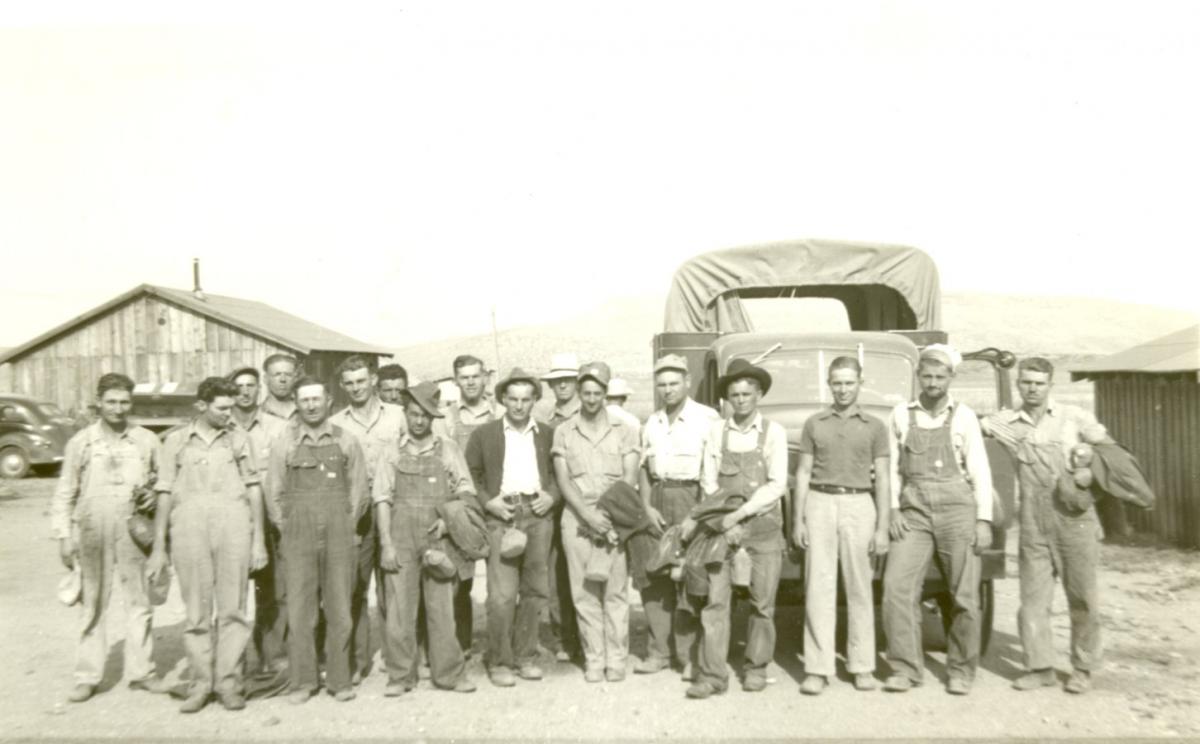 CPS Camp No. 33 Fort Collins, ColoradoCivilian Public Service camp 33, Fort Collins, Colorado. Men who work at the dam building project.Box 1, Folder 20. MCC Photographs, Civilian Public Service, 1941-1947. IX-13-2.2. Mennonite Central Committee Photo Archive
CPS Camp No. 33 Fort Collins, ColoradoCivilian Public Service camp 33, Fort Collins, Colorado. Men who work at the dam building project.Box 1, Folder 20. MCC Photographs, Civilian Public Service, 1941-1947. IX-13-2.2. Mennonite Central Committee Photo Archive -
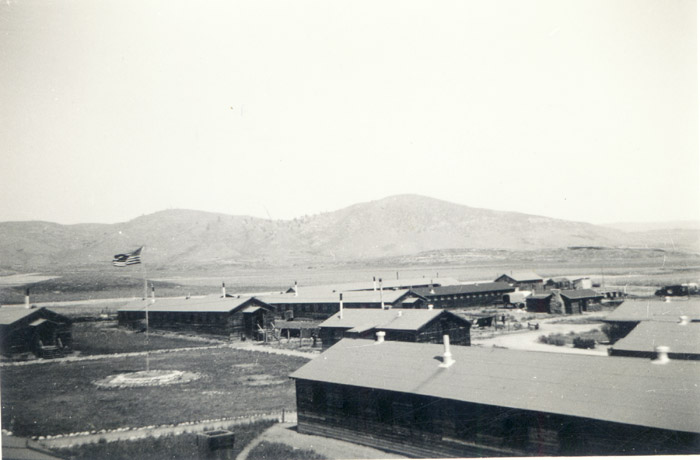 CPS Camp No. 33, Fort Collins, ColoradoCivilian Public Service camp #33, Fort Collins, Colorado.Digital image at Mennonite Church USA Archives, North Newton, Kansasca. 1943
CPS Camp No. 33, Fort Collins, ColoradoCivilian Public Service camp #33, Fort Collins, Colorado.Digital image at Mennonite Church USA Archives, North Newton, Kansasca. 1943
-
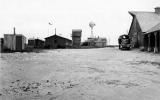 ca. 1943
ca. 1943 -
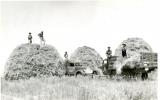
-
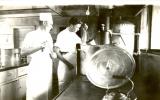
-
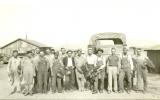
-
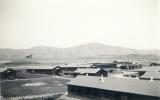 ca. 1943
ca. 1943
CPS Camp No. 33, a Soil Conservation Service base camp located northwest of Fort Collins, Colorado and operated by Mennonite Central Committee, opened in June 1942 and closed in October 1946. Some men worked on the Greeley Dam, others constructed irrigation ditches and performed other erosion control activities.
CPS Camp No. 33, a Soil Conservation Service base camp, was located Northwest of Fort Collins in the valley of the Poudre River, which furnished irrigation water for area farms. The men also worked at Buckingham Side Camp seventy-five miles to the east.
Directors: John F. Schmidt, Emmanual Hertzler, Henry Reimer, Given Culley, Willard Gaeddert, Wesley Dick, Albert Buckwalter, Eldon King
Dietician: Mary Wollman, Ella Sanner, Helen Mishler, Myrtle Kolb, Louise Duerksen
Buckingham Side Camp - Lucille Schmidt, Mrs. Lloyd J. Rogers
Matron: Myrtle Schnell Hertzler, Mrs. John F. Schmidt
Buckingham Side Camp, Mrs. Ellis Swartzendruber, Myrtle Schnell Hertzler
Nurse: Lola Schertz
Nurse-Matron: Esther Zimmerly, Dora Woelk, Edna Peters, Josephine Naffziger, Anne Klassen, Mary Duerksen
Typically in the Mennonite camps, the majority of the men reported a variety of Mennonite denominational group affiliations upon entry into CPS. A number of the men were married and some of the wives lived in the community near the camp.
The majority of men in Mennonite camps and units reported their occupations as farm or agricultural work when entering CPS. On average, men in Mennonite camps had competed 10.45 years of education, with nearly twenty-two percent having completed one or more years of college or graduated, or completed graduate and post-graduate work. (Sibley and Jacob pp. 171-172)
The camp accommodated two hundred men.
One crew worked on the Greeley dam, which stored water for the town of Greeley forty miles away. The men performed fire suppression duties. They also constructed irrigation ditches and outlet boxes, set tile drainage, surveyed and leveled land and conducted soil analysis.
At Buckingham side camp, seventy-five miles to the east, men built fences, reseeded grass lands, drilled wells and built stock tanks. Men from the camp designed and built a posthole digger.
Some men performed crop experiments at the Colorado Experiment Station. Others did emergency farm labor in sugar beet, bean, hay and grain fields.
Reuben Krehbiel worked in the sugar beet fields. He soon applied for work at Cameron Pass, a side camp.
Here I was to drive a caterpillar pulling a road grader to build passable roads for ranchers in the area. . . . One day late at night we were alerted to the fact that there was a big fire near Steamboat Springs, across the continental divide. We were loaded in a big truck without a tarp. We huddled together to try to keep warm but we arrived safe and ready to go to work the next morning. Firefighting was the most difficult work in CPS. Before the fire was contained, I had the opportunity to go back to road building.” (in Eden Peace Witness: A Collection of Personal Accounts pp. 128-129)
Virgil Kaufman, who arrived at Fort Collins June 7, 1946, recalled experiences in camp life.
. . . I stayed in Dorm C where most of the General Conference [Mennonite] draftees slept. Other dorms housed Old Mennonites, Mennonite Brethren, Amish, Holdeman and others. I met fellows from South Dakota, Nebraska, Iowa, Oklahoma, Ohio and other places . . . .
We were a good group of draftees. We spent our time, aside from working on our projects, playing softball, rug weaving, leather craft, Ping-Pong (even had a tournament), singing, worship services, meetings, and visiting, getting better acquainted with the guys. Occasionally, outside speakers came in to show support.
At one of our softball games in town, one of the spectators questioned our driver and business manager. “What does C.P.S. stand for?” On the spur of the moment he answered “Catcher, pitcher and shortstop.” That satisfied him and no more questions were asked. (in Eden Peace Witness: A Collection of Personal Accounts pp. 121-124)
Since camps often experienced difficulty finding enough dieticians and cooks to staff the kitchens, a traveling dietician started cooking schools, a part of the formal education program, to train men in the camps. Fort Collins hosted two schools under the leadership of Christine Weaver. “The men were evaluated on the basis of managerial ability, co-operativeness, food standards, application of knowledge, promptness and working tempo, personal appearance and orderliness, and personality. “ (Gingerich pp. 312-313)
One man from Fort Collins trained as a craft leader in a three-week craft school led by David Kope at CPS Camp No. 18 in Denison, Iowa.
In 1945, the men published Service for Peace, which included not only photos of camp scenes and project activities, but also for posterity, the portraits of each assignee.
From July 1942 through December 1943, the men published Poudre Canon News. They also published The Rising Tide from January 1944 through June 1945. The Calendar ran from November 1945 through August 1946.
For more information on soil conservation camps operated by MCC see Melvin Gingerich, Service for Peace: A History of Mennonite Civilian Public Service. Akron, PA: Mennonite Central Committee printed by Herald Press, Scottdale, PA 1949, Chapter X pp. 108-124; cooking schools pp 312-313.
For more information on women COs see Rachel Waltner Goossen, Women Against the Good War: Conscientious Objection and Gender on the American Home Front, 1941-47. Chapel Hill, NC: The University of North Carolina Press, 1997.
See The Eden Peace Witness: A Collection of Personal Accounts edited by Jeffrey W. Koller. Moundridge, KS: Jebeko Publishing, 2004.
For general information on the work of CPS camps and units, see Albert N. Keim, The CPS Story: An Illustrated History of Civilian Public Service. Intercourse, PA: Good Books 1990.
See also Mulford Q. Sibley and Philip E. Jacob, Conscription of Conscience: The American State and the Conscientious Objector, 1940-1947. Ithaca, NY: Cornell University Press, 1952.
Swarthmore College Peace Collection, Camp periodicals database.